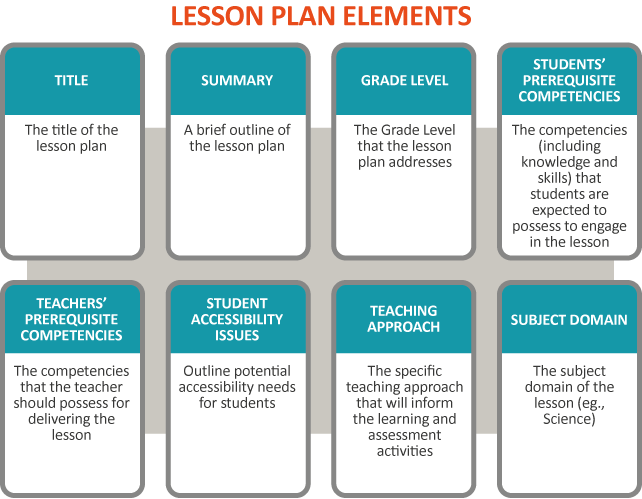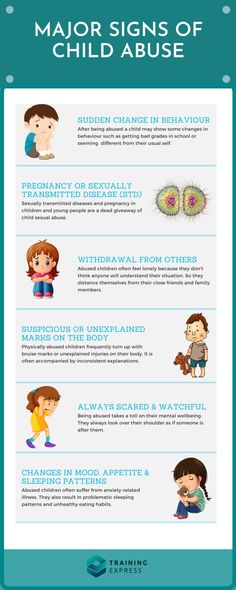How do i get my child assessed for learning difficulties
What to Do If You Suspect Your Child Has a Learning Disability
Learning disabilities are real
According to the National Institutes of Health, they affect 15% of America’s school children. With early intervention, children with learning disabilities can learn strategies to achieve as well as other youngsters do.
If you suspect that your child has a learning disability, don’t despair. Follow a few important steps and you will be on the way to helping your child and educating yourself in the process.
Collect information about your child’s performance
Organizing information about your child will help you to monitor progress. Meet with your child’s teachers and other school personnel to understand his or her performance and attitude towards school. Observe your child’s ability to study, do homework and finish the tasks you assign at home. Keep a file of all the materials about his or her education including tests and results. Keep a record of what you notice and about your talks with professionals. This dated information will be valuable in planning for your child.
Have your child tested
Ask the school administration to provide a comprehensive educational evaluation. This will include interviews, direct observation, a review of your child’s educational and medical history, a test that will measure your child’s strengths and weaknesses, and conferences with professionals who work with your child. Either you or the school can request the evaluation, but it is only given with a parent’s written permission.
Teamwork
If the results indicate that your child has a learning disability, she or he is eligible for special educational services. You will work with a team including your child’s teacher to develop an Individualized Education Program (IEP). This is a written document that summarizes your child’s educational performance, plans the short-term educational goals and outlines annual goals. It also gives methods for measuring progress. You are a big part of this program so don’t be afraid to speak up.
If your child does not qualify for special education, it is still important for you to work with the teacher to create an informal program that meets your child’s needs.
Find ways to help
Changes can be made in classroom routines to help children with learning disabilities. Talk to your child’s teachers about these ideas: reading aloud, allowing extra time on exams, taping lessons and using new technology.
Talk to your child about the disability
Reassure your child that having a learning disability only means that his or her mind works on words and information a little differently. It does not mean being stupid or lazy. Be honest and optimistic with your child. Explain that though learning may be a struggle he or she can still succeed.
Know your child’s strengths
Children with learning disabilities are often very smart, or good leaders, or outstanding in sports or creative areas like art or sculpture. Focus on your child’s strengths as well as helping with the difficulties. If time allows, encourage your child in after school activities.
If time allows, encourage your child in after school activities.
Work with your child at home
Help your child do homework by establishing a regular time and a specific place for it and giving lots of encouragement. Praise your child for work well done and practice good school behavior at home.
Know your legal rights
Learn about your legal rights by asking the school for a summary of them. Under the law, every child with a learning disability has the right to a “free and appropriate public education.”
Join with others
The best way to learn more about learning disabilities and to meet other parents is to join one of the groups listed here. You will get the latest information and find new ways for your child to reach their full potential.
The Coordinated Campaign for Learning Disabilities is a collaborative public awareness effort of the following organizations:
Having Your Child Tested for Learning Disabilities Outside of School
Who you choose to work with your child is a key decision. A professional who provides a good diagnosis that reveals your child has a learning disability (LD) or ADHD, for example, can be a gateway to services that open doors to learning and a more fulfilling life for a student. A good tutor can help your child learn reading strategies or catch up in school.
A professional who provides a good diagnosis that reveals your child has a learning disability (LD) or ADHD, for example, can be a gateway to services that open doors to learning and a more fulfilling life for a student. A good tutor can help your child learn reading strategies or catch up in school.
You can find the names of professionals to choose from in local phone books, from a list provided by the school, or from people you know. LD OnLine also lists professionals in its Yellow Pages.
Although you definitely want to work with someone who makes you and your child feel comfortable, that's not enough. Here are some questions to ask and points to keep in mind when deciding which professional to choose.
Are you licensed or certified?
Many professionals can suspect LD and/or ADHD, but not all of them are licensed or certified to diagnose these disorders.
When you go to a person in private practice (i.e., someone who is not employed by the school system), it's important to determine if the professional has the needed license to be in private practice and to make the diagnosis of LD or ADHD. Most states require the license of psychologists, psychiatrists, social workers, and lawyers to be in clear view in their offices.
Most states require the license of psychologists, psychiatrists, social workers, and lawyers to be in clear view in their offices.
What areas do you specialize in?
Ask the person, "What is your area of expertise?" This could include learning disabilities, ADHD, speech and hearing, legal issues, behavior modification, education, emotional concerns, family counseling, and more. Consider which experience and expertise is most appropriate for your child's situation.
What age range do you specialize in?
The person could specialize in working with preschoolers, children, adolescents, or adults. It's important to choose a professional who is used to working with children of your son's or daughter's age.
What are your fees?
Ask the person what his or her hourly rate is and how an hour is defined. Some use a 45 or 50 minute hour (this is so they have time to write notes about the session). You may also want to ask whether appointments can be broken up into smaller blocks, what happens if you miss a scheduled appointment, whether there is a sliding fee scale, and if a payment plan can be set up.
Will you accept my insurance or HMO coverage?
Not all professionals will take insurance and not all insurance will pay for the professional's fee. If money is an issue, you need to know upfront if your insurance or HMO will pay for the professional's fees and whether the professional will accept your insurance. Also ask if the office will submit bills to the insurance company or if you will need to do so.
Will I get a written report?
If you need a written report for an upcoming meeting with the school, make sure the person will be able to meet your deadline. Determine how long it usually takes to get a written report and whether the cost of the report is included in the estimated charge.
Will you coordinate with the school?
Ask if the person will go to the school for meetings if needed and how that time will be billed. Find out if the person will coordinate the work he or she is doing with your child with what your child's classroom teacher is doing in school.
What range of services do I need?
Think about whether you need someone to just do testing, whether you need someone who can also work with the school, and whether your child needs a few sessions or many.
What information can I gather to help with the diagnosis?
Look for your child's school records, work samples, past assessments, and teacher comments, all of which may help the professional gain information on how to assess or help your child.
How should I explain this to my child?
Ask the person for advice on how you can talk to your child about his or her need for testing, counseling, or educational intervention.
Do I want to interview more than one professional to determine the best one for my child's needs?
Yes. Unless you have a strong recommendation from a close friend or from the school, it is wise to interview more than one person before making a decision.
How to motivate your child to learn: simple ways that will help you
Surely every parent has at least once wondered how to teach a child to be independent without hassle and disappointment? How to teach children to do homework with joy, to make the learning process exciting for the children themselves. Our new blogger Anna Chirkova tells how to work with children's motivation.
Our new blogger Anna Chirkova tells how to work with children's motivation.
In recent years, the practice of teachers shows that the number of children who do not seek knowledge is constantly growing. It appears even in primary school students.
Unwillingness to learn is manifested in the fact that children forget to do their homework, their textbooks and desks are messy, they draw in class, look out the window, talk to classmates, they are bored in class. Such children may blame teachers for their poor grades, but most often they do not care at all about poor performance.
Why do children not want to study? Even teachers with experience are not always ready to unequivocally answer this question, but we will try to give the simplest and most effective ways to motivate your child.
There are many reasons why children do not want to study. Let's analyze some of them.
What influences the unwillingness to study
1. The child is too small for school.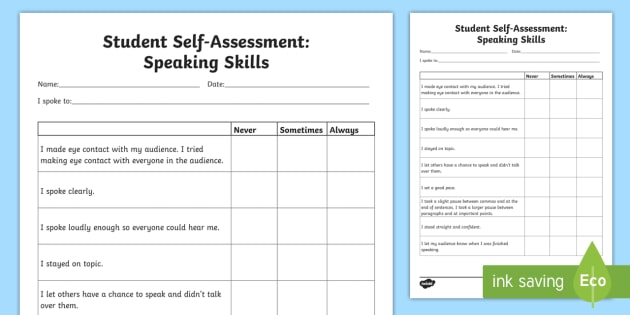 Parents think that their children are ready for school if they see that they know a lot for their age. But even if your child is smart enough, and you think not to take him an extra year to kindergarten, this does not mean that he is psychologically ready for school. Most likely, the child will not be able to obey certain rules. In addition, it is more difficult for young children to sit for a long time in the classroom without moving.
Parents think that their children are ready for school if they see that they know a lot for their age. But even if your child is smart enough, and you think not to take him an extra year to kindergarten, this does not mean that he is psychologically ready for school. Most likely, the child will not be able to obey certain rules. In addition, it is more difficult for young children to sit for a long time in the classroom without moving.
2. Conflicts with teachers. Often, even the teachers themselves are not aware of the conflict with their pupils. They may notice that the student has poor academic performance, his behavior has changed, although, as it seems to the teacher, there was no conflict as such. In fact, the child could hear unpleasant words addressed to him or hold a grudge against the teacher's behavior. The child may feel depressed, feel fear, he develops a negative attitude towards the teacher. In most cases, children do not want to tell their parents about their fears related to school, this preserves the conflict and the difficulties associated with it.
3. Conflicts with students. If such a problem has already developed, then it can be very difficult to correct it without consequences for the child.
4. Physical defects. For example, stuttering, trembling of the limbs, and others. It is very difficult for children to get used to the idea that they are somehow different from their peers. It becomes especially difficult in cases where the shortcomings cause bullying and laughter from classmates. Knowing about his problem, the child does not want to become the center of attention, feel humiliated and once again appear at school.
5. Family conflicts. Scandals between parents and other family members. Often such a child closes in on himself due to experiences, he not only loses his motivation for learning, he is rarely interested in anything at all.
6. Pressure on the child from parents and relatives . We set high standards for children, sending them to the best schools where education is conducted at a higher level, we enroll in various sections. Just imagine how many sections parents try to send their children to without taking into account the opinion of the children themselves. Parents scream, get indignant, scold children if they bring bad grades or simply do not reach the results of their classmates. Think about it, maybe you are putting too much pressure on the children, forcing them to do what they do not want.
Just imagine how many sections parents try to send their children to without taking into account the opinion of the children themselves. Parents scream, get indignant, scold children if they bring bad grades or simply do not reach the results of their classmates. Think about it, maybe you are putting too much pressure on the children, forcing them to do what they do not want.
What factors influence interest in learning
1. Interest in the subjects studied . Often, children lose interest in studying some subjects just because they seem boring to children. However, you need to make it clear to the child that in all lessons they give the necessary information that develops different skills, so it is important to study all subjects. There are many disciplines, the study of which requires more work. In this case, you need to find another motivation. Much depends on the teacher, who is able to explain complex things in simple language and thus simplify the learning process.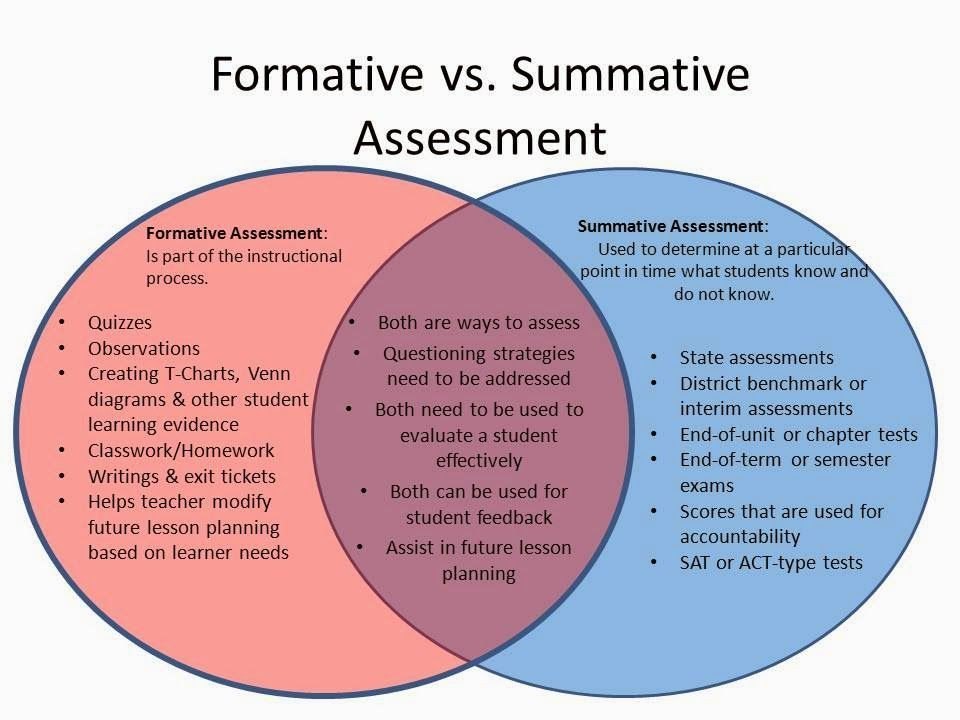
2. Method of studying objects . In elementary grades, it is much easier for children to learn with the help of active methods, discussions and games. The teacher should pay attention to the fact that tasks like “rewriting textbooks” and “working on our own” reduce interest in the subject, while creative and various unusual ones, on the contrary, increase.
3. Perception of information . Some children perceive information better through sight, others through hearing, others through images. The effectiveness of teaching children largely depends on the type of perception of information. Parents themselves can choose the ways of teaching the child if they understand his peculiarities of perception of information.
4. Teacher's interest . When a teacher intrigues students with a personal example, shows a positive attitude towards the subject, then children also become interested in what they are taught. When they know that they will hear something funny or interesting in class, they look forward to these items with joy.
What are the types of motivation
Motivation is one of the most important conditions for successful learning. The most significant for students are the following motives:
- cognitive, that is, the desire to know more, to become erudite;
- communicative - expanding the circle of communication through an increase in the intellectual level and new acquaintances;
- emotional;
- self-development - disclosure of one's abilities and talents;
- student position;
- achievements;
- external - rewards, punishments.
In addition, motives are divided into external (social) and internal (cognitive). An example of extrinsic motivation: "I need to pass the exam so that my parents don't scold me." Intrinsic motivation: "I really like literature lessons, so I read every free minute, I learn something new with every book I read."
There are two more types of motivation - stable and unstable.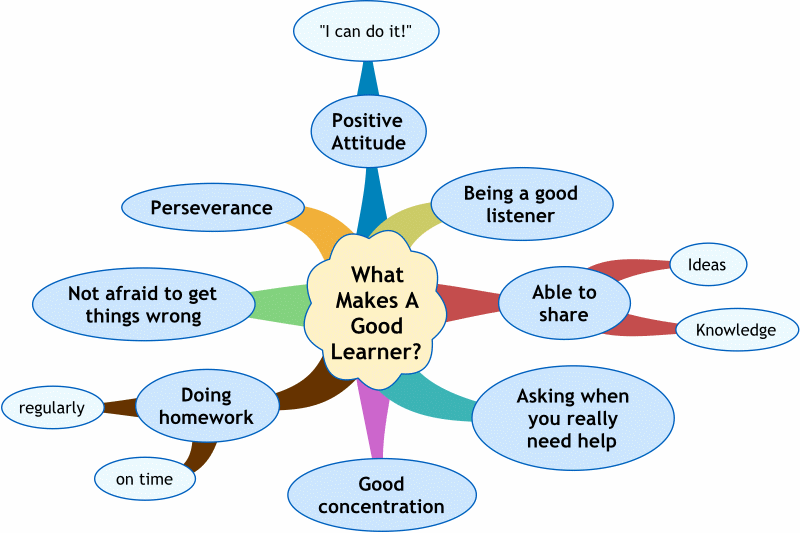 An example of sustainable motivation: "Since the day I entered the drawing school, I have never regretted that I chose this particular section." Unstable: “I went to a concert, I also wanted to play some instrument, I started studying, but after a while I quit.”
An example of sustainable motivation: "Since the day I entered the drawing school, I have never regretted that I chose this particular section." Unstable: “I went to a concert, I also wanted to play some instrument, I started studying, but after a while I quit.”
Most often, children's motivation is unstable due to the fact that they are very emotional. It is very easy to interrupt old ones with new emotions and impressions.
It is very difficult for a child who is not interested in learning to apply the acquired knowledge in practice, and the lack of motivation for the learning process leads to chronic academic failure. Why is this happening? Often the parents are to blame.
Of course, only you can choose how to properly raise your child, but his and your life depends on this choice. Not all parents realize what mistakes they make in the process of motivating their children. Consider not all, but the most relevant of them, which are most often found among parents.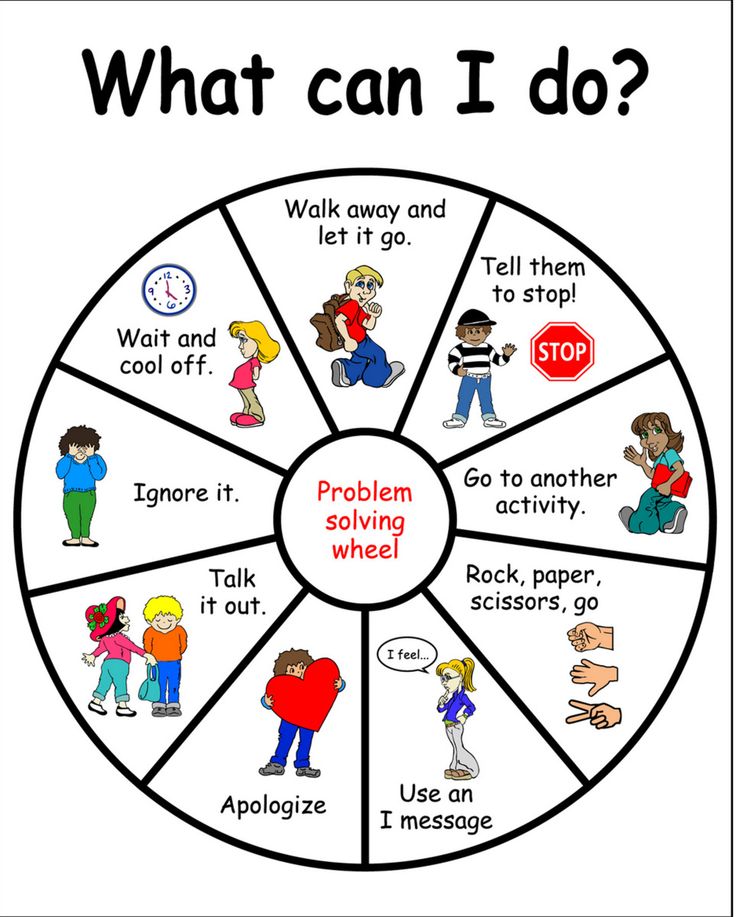
1. Lowering your child's self-esteem, programming for failure. This happens when you tell a child that nothing good will come of him, that he will become a janitor if he does not study well. Such words lead to an underestimation of self-esteem, in case of any failures, the child lets go of his hands, completes what he started at the slightest problem.
2. Deception and intimidation . If you use such methods, the connection and trust between you and your child will be destroyed.
3. Exaggerated demands, not taking into account the child's capabilities . The parent may think that the child is lazy or “not studying on purpose”, while there may be specific reasons (mental developmental features, illness, fatigue).
4. Gifts in exchange for good academic performance . There are many downsides to this method. The child quickly develops a habit of getting what he wants through good grades. In the future, he may begin to demand a reward and fulfill your requests only after receiving what he wants. Such children are only aimed at receiving presents, and not at good studies.
Such children are only aimed at receiving presents, and not at good studies.
5. Motivated by success . Often, parents assure the child that all his actions should be aimed at success and high status in society. In the future, such children grow up to be people who do everything for the sake of success and money, and not because it brings them positive emotions or is aimed at helping loved ones.
6. Excessive workload in various activities and sections . Modern parents like to plan their children's schedule as tightly as possible so that they spend their time with benefit every day. The child's psyche may not be able to withstand such a load, so you will get a complete lack of interest in classes.
How to increase motivation to study
1. Educate your child in a playful way
Play is a unique instrument of pedagogical influence. If the child does not want to learn or something does not work out for him, you can always come up with a game in which he will be able to complete the tasks you have given.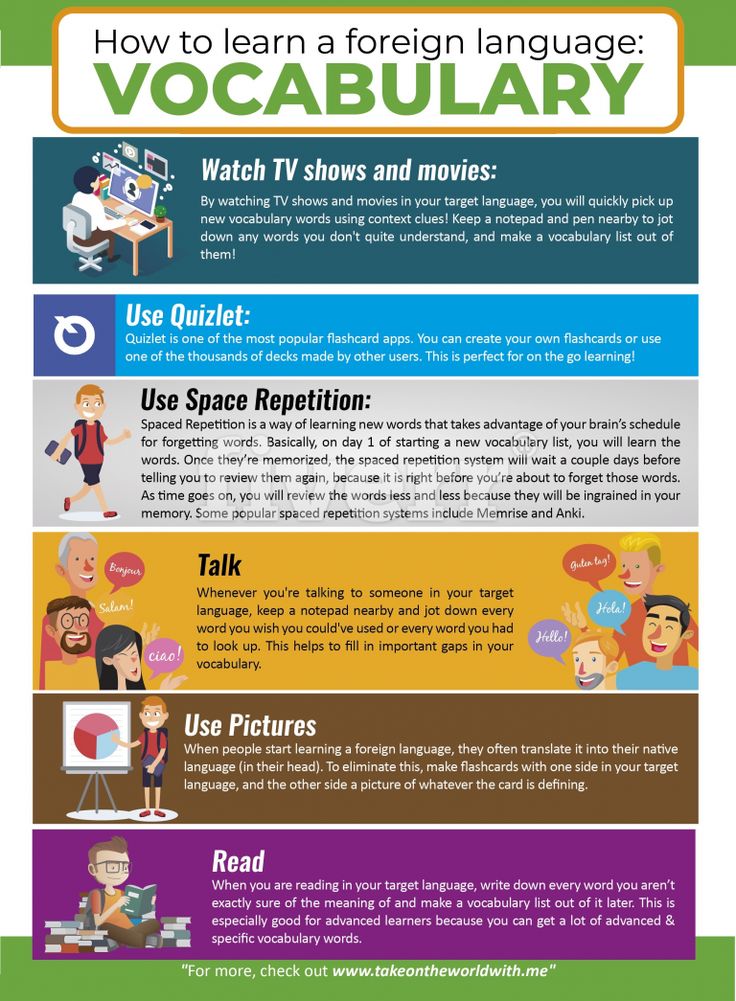
These can be intellectual exercise games, training games based on competition. They show schoolchildren the level of their preparedness and fitness. By comparing with the opposite team, students themselves see their gaps in knowledge, this encourages cognitive activity in them.
The game form does not involve standard student assessment, so even lagging children can be interested.
2. Support the child in his hobbies
Do not impose your favorite activities, let him pursue his hobby. Help children discover their hidden talents or develop those they already have, let them freely choose what interests them.
3. Small rewards, not big rewards
Encourage the child, praise for the result, but do not do it in the form of money and in the form of expensive gifts. Otherwise, the time will come when the child wants to sell you the results of his labor at a higher price. For example, the rule "For every correct task - 1 candy" works much better than "For every five in the diary - a cake.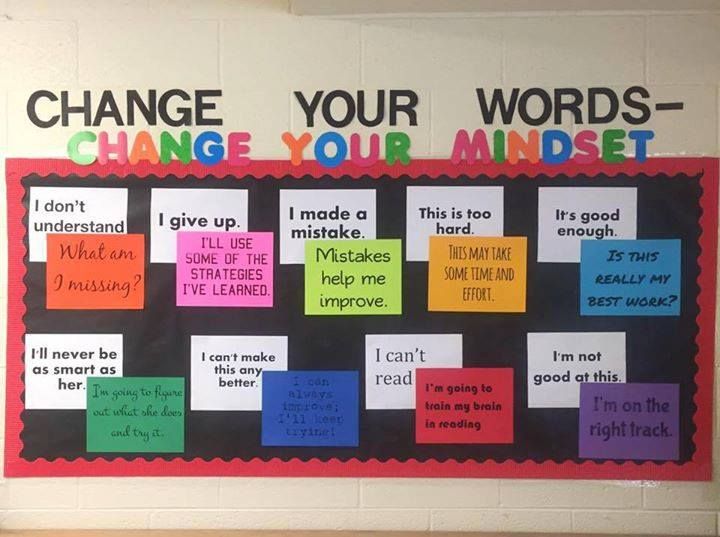 " Candy is a kind of guarantee that difficult homework is done in an atmosphere of trust, which in itself is already a motivation.
" Candy is a kind of guarantee that difficult homework is done in an atmosphere of trust, which in itself is already a motivation.
4. Be interested in what your child has learned in school, not in his grades
Show him how to apply what he has learned, discuss his stories together. Encourage your child to think and discuss as often as possible. Remember that any grades are a subjective thing, this is not an indicator of your child's knowledge, but only his assessment by teachers.
A child does not have to be an excellent student, he has the right to receive bad marks. If he himself was upset because of the deuce - support and never scold. After all, first of all, you should be his friend and partner.
5. Minimize stress
Tell the children how you yourself overcame difficulties in school, how you coped with difficult tasks. Show what you have achieved now that you have walked this path. Talk together about your failures and fears.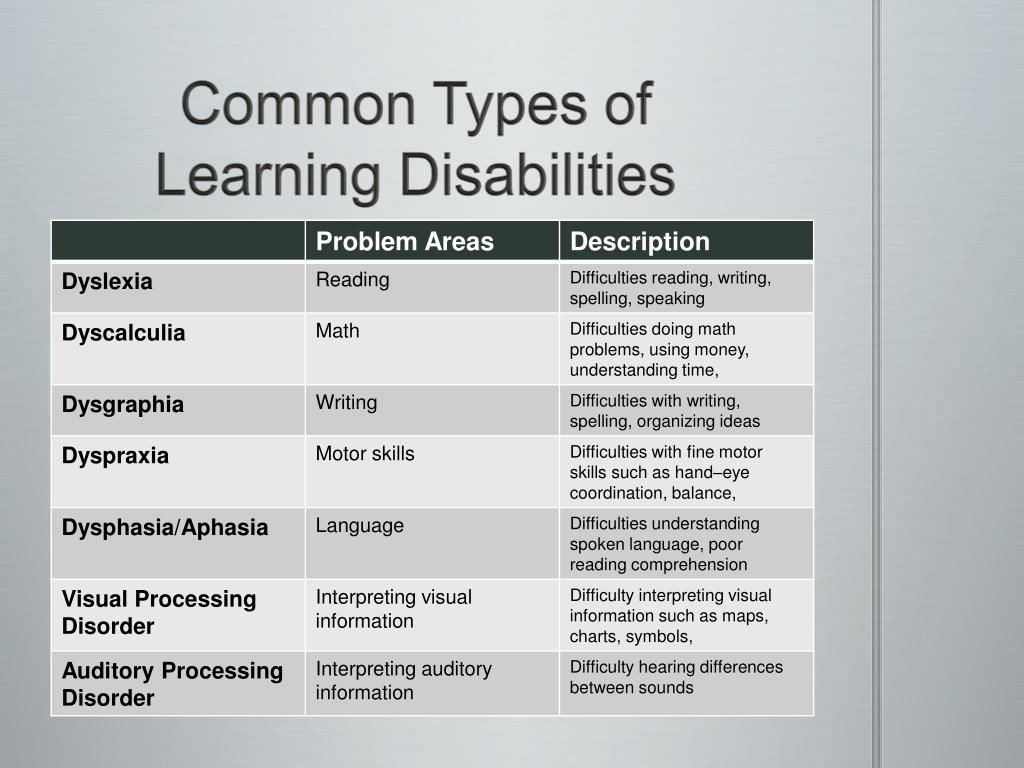
The child should always know that he will be heard, and problems will not be exaggerated. Explain that stress is an integral part of life, teach how to cope with it so that in the future the child can overcome it himself.
Motivation for learning does not develop overnight, sometimes it takes a lot of effort and time. If you have missed something in raising your child, it is never too late to start building your relationship on the basis of trust and understanding.
Do not motivate your child with distant and illusory goals incomprehensible to his age. Every parent must find where the potential of their children lies. Try to reveal his talents from different angles, give him the opportunity to prove himself. Look for inclinations in your children for some kind of activity, show by your own example that we are learning new things all our lives, that there are many interesting things in life.
Do not forget that in no case should you beat, humiliate, yell at a child, because school will end sooner or later, but your relationship will remain.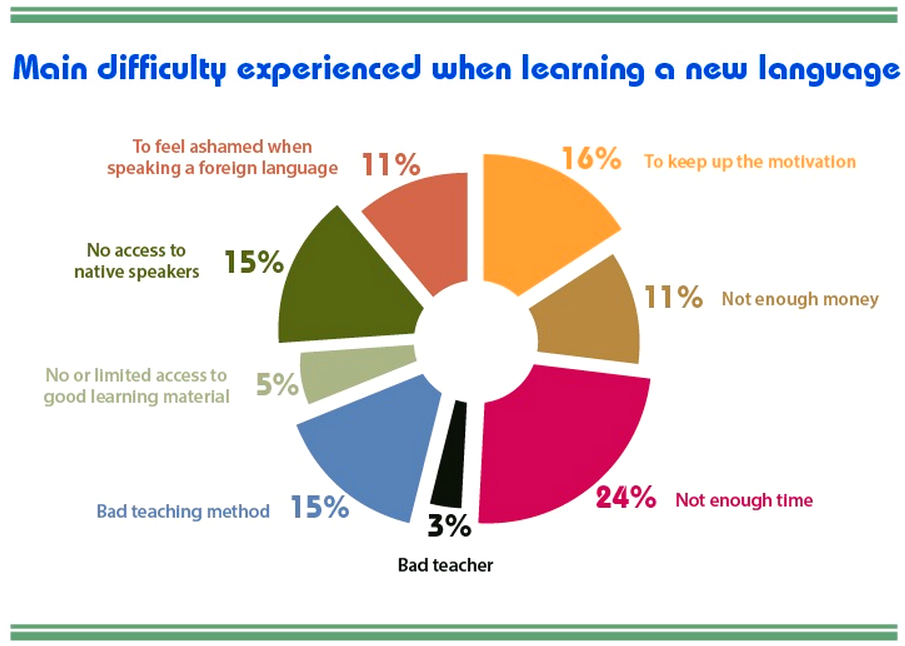 According to the research of E. N. Volkova, the majority of children living in families in which severe physical, emotional, and other types of violence are used have signs of a delay in physical and neuropsychic development. Their memory deteriorates, the processes of memorization and retention are difficult, selectivity in memorization increases sharply. Attention becomes scattered, speech becomes poorer, stuttering appears. Children do much worse at school, the processes of school adaptation are more difficult.
According to the research of E. N. Volkova, the majority of children living in families in which severe physical, emotional, and other types of violence are used have signs of a delay in physical and neuropsychic development. Their memory deteriorates, the processes of memorization and retention are difficult, selectivity in memorization increases sharply. Attention becomes scattered, speech becomes poorer, stuttering appears. Children do much worse at school, the processes of school adaptation are more difficult.
Imagine what kind of person your child will be at the end of the learning journey. The time spent studying is very valuable for his formation as a person, do not miss it!
Photo: Shutterstock (granata68)
Learning Disabilities: Recognizing signs and helping your child
Learning disabilities are severe and persistent difficulties in one or more areas of learning - reading, spelling, writing, and math. A child with a learning disability typically has a low level of ability in one or more of these areas relative to educational attainment, age, and other abilities.
Other terms are sometimes used to refer to learning disabilities: special learning disabilities, learning difficulties, special learning difficulties, and dyslexia.
Learning disabilities should be assessed and diagnosed by specialists.
Causes of learning disabilities
The exact causes of learning disabilities have not yet been fully investigated. It is known that this is due to difficulties in processing information in some parts of the brain - This is called "difficulty processing information due to neurological causes."
Common "processing difficulties" include situations where the child has difficulty making sense of sounds in words, or has difficulty remembering unrelated elements, such as a sequence of numbers or letters.
The causes of learning disabilities are associated with certain genes, and such disorders can be inherited. If other members of your family have reading or spelling difficulties, or have been diagnosed with a learning disability, then there is a possibility that the next generation of children may also have learning disabilities.
Signs of a learning disability
If you think your child may have a learning disability, look for the following common signs. Having one or more of these signs does not mean your child definitely has a learning disability. But if you're concerned, talk to your child's teacher or check with your pediatrician.
If you have a learning disability, your child is likely to:
- dislike reading and/or find it difficult to read
- it is difficult to write ordinary words correctly
- it is difficult to distinguish sounds and syllables in words
- likes to tell you a lot of interesting things, but he will write slowly and with difficulty
- it will be difficult to develop sloppy handwriting
- will not be easy to do homework.
Diagnosing Learning Disabilities: Steps to Take
Talk to Your Child's Teacher
If you're worried that your child is having trouble at school and may have a learning disability, start by talking to your child's teacher .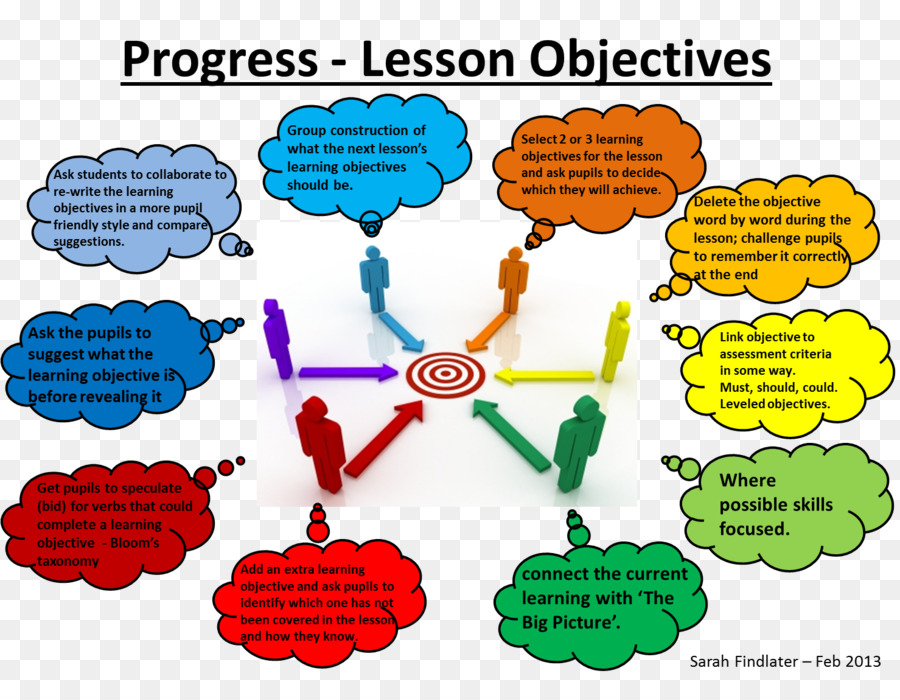
Ask if your child is learning to read, write and count as expected. It may also be worth talking to the teacher about their impression of your child's self-esteem and school performance.
The teacher can test your child and discuss the results with you. This can help you understand if there is any pattern in how problems manifest.
Ask for an evaluation
If you are still concerned, ask the school to have a formal evaluation process.
A speech therapist or psychologist can be involved at this stage. They will help to find out all the possible reasons. If there is a long wait for this, or if your school does not conduct such an assessment, you can contact a specialist privately, but this service will be paid.
See a pediatrician to check your child's vision and hearing. In this way, you can rule out problems in these areas as the cause of your child's difficulties.
Tell your child about learning disabilities
Children with learning disabilities cannot, for example, read as easily as their peers. This may lead them to consider themselves "stupid" or "stupid".
This may lead them to consider themselves "stupid" or "stupid".
Telling a child that they have a learning disability can help them overcome this way of thinking. You can tell your child that a learning disability means that their brain processes information differently, but this does not mean that they are not as smart as other children .
A psychologist or speech therapist can give you advice and help explain to your child what a learning disability is.
You can also highlight some positive things that your child is doing well in life and school, despite the learning disability. It might be mentioned that many truly successful people live with a learning disability.
Help your child learn to overcome difficulties and develop self-esteem
Children with learning disabilities may suffer from low self-esteem. There is also an increased risk that they will drop out of school if learning disabilities are not addressed at an early age.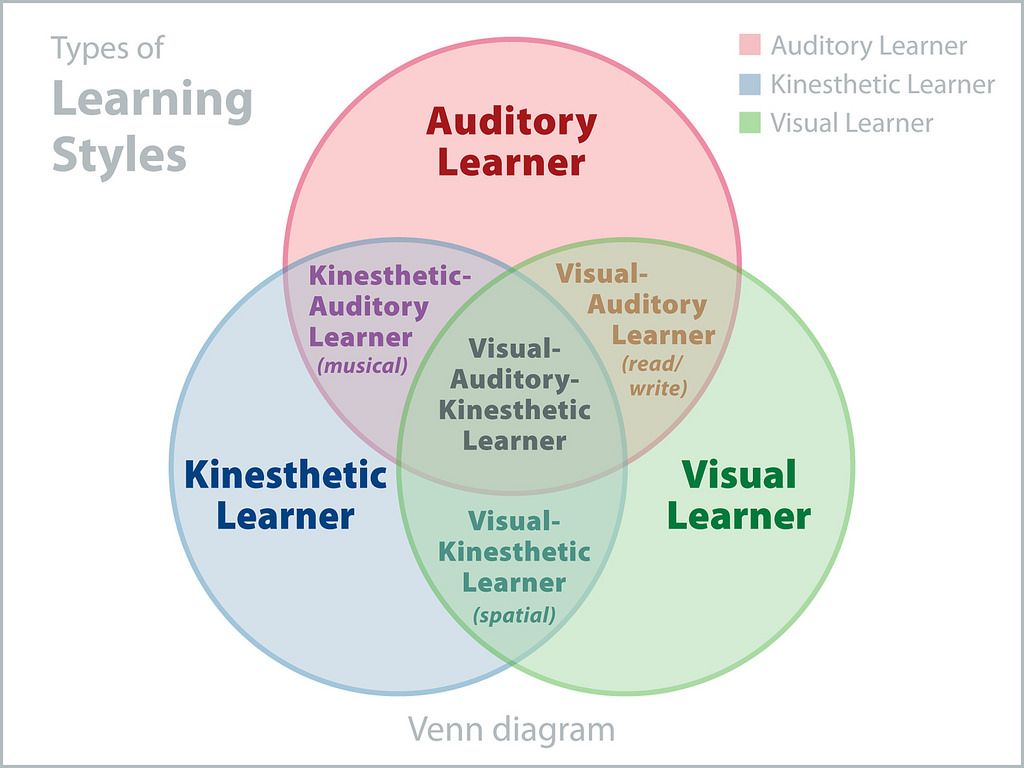
This means it's important to identify learning disabilities early and help your child build coping skills. This skill—the ability to bounce back from adversity and setbacks—is an important life skill for all children, especially children with learning disabilities.
The following tips can help you teach your child how to deal with difficulties and feel good about their abilities and characteristics.
Be a role model for your child
You can be a role model for your child if you yourself are positive, confident and able to cope with difficulties. For example, if you don't get a cake, you can say, “It doesn't matter. Next time I'll use a different recipe." Or, if you're being criticized at work, you can say, "That's hard to hear, but I can learn from this."
Praise and encouragement
- Always praise your child when he tries to do something.
- Celebrate your child's abilities and accomplishments when they are good at something outside of school.
 It could be sports, music, theatre, or just important qualities - kindness and friendliness - or skills - maybe he's great at cooking.
It could be sports, music, theatre, or just important qualities - kindness and friendliness - or skills - maybe he's great at cooking. - Help your child see the positive in his life and understand that his learning difficulties are only a small part of his personality.
- Stimulate your child so that he understands what helps him to overcome difficulties - for example, maybe written instructions and diagrams, or does he prefer verbal instructions?
- Take time to be with and listen to your child, and have fun together. This will help him understand that he is special, that you appreciate him and want to spend time with him.
- Encourage your child to try new things. Understanding what he can learn if he practices and doesn't give up will help your child keep going when things get tough.
Responsibilities and Expectations
- Entrust your child with household chores and allow them to make their own decisions and choices.
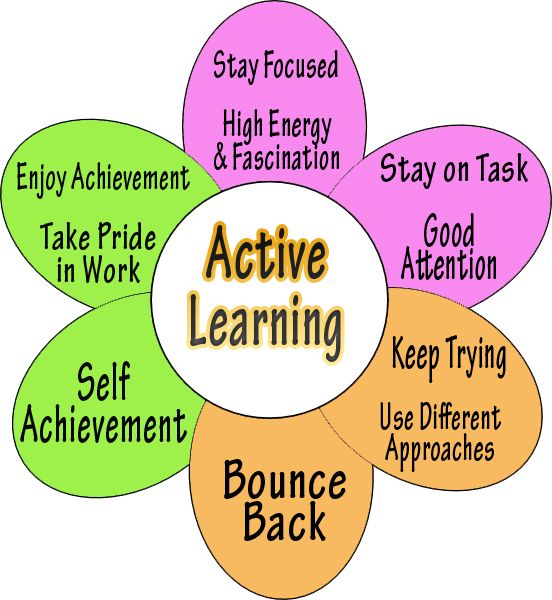 A sense of responsibility really helps boost self-esteem.
A sense of responsibility really helps boost self-esteem. - Support your child, but do not overprotect him. Show him that you expect him to be diligent and responsible in completing tasks such as homework, despite the fact that it is not easy for him.
- Let your child try new things like cooking, chess or photography. If you do all this together with your child, it will help him to believe that he will succeed and he will enjoy learning new skills.
Extra Help for Learning Disabilities
Your child may need extra help or support to achieve their best learning opportunities. If medical professionals recommend additional assistance, obtain all documents from them so that you have the opportunity to demand for your child, for example, extra time on an exam, learning to read from a specialist, or special software for a computer.
For children with learning disabilities, there are many different types of out-of-school assistance , for example, you can use the services of tutors.